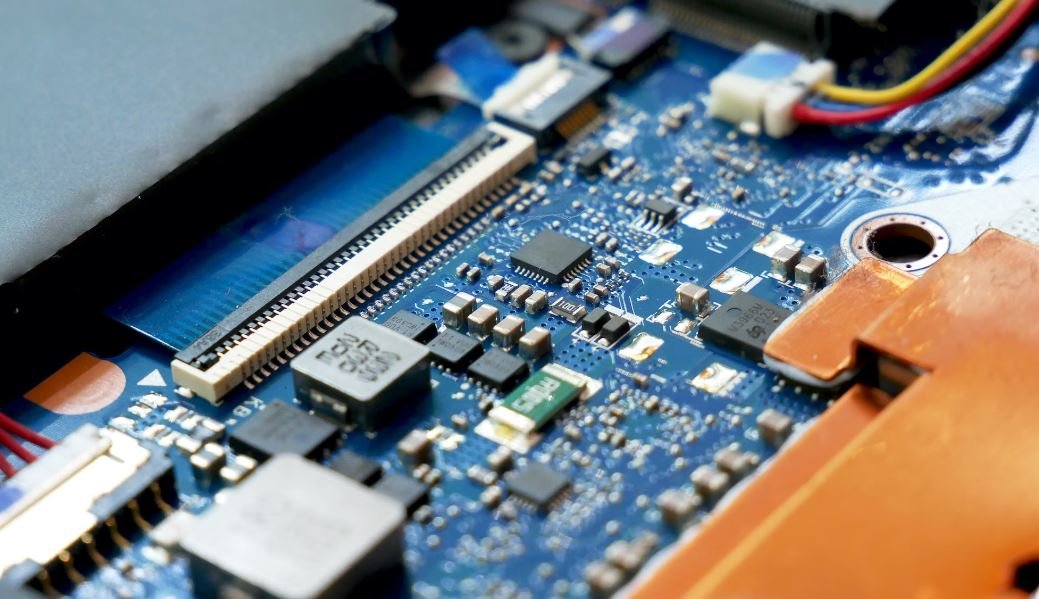Will AI Replace Lawyers?
Artificial Intelligence (AI) has been transforming various industries, and the legal profession is no exception. With advancements in natural language processing, machine learning, and data analytics, AI technologies are increasingly being implemented in law firms and legal departments. But what does this mean for the future of lawyers? Will AI replace them completely? This article explores the potential impact of AI on the legal profession and provides insights into what the future may hold.
Key Takeaways:
- AI technologies are increasingly being used in the legal profession.
- AI can automate repetitive tasks and enhance efficiency in legal processes.
- However, AI is unlikely to replace lawyers entirely, but rather augment their capabilities.
- Embracing AI can lead to cost savings, improved accuracy, and better decision-making.
AI offers numerous benefits to the legal profession. **Automating repetitive tasks**, such as document review and contract analysis, can save lawyers valuable time and allow them to focus on more complex and strategic work. *AI-powered legal research tools* can quickly analyze vast amounts of legal texts and provide relevant information, making the research process more efficient. Moreover, AI can assist in predicting case outcomes based on historical data, enabling lawyers to make more well-informed decisions.
The Role of AI in the Legal Profession
AI’s impact in the legal profession can be seen across various areas. For instance, in **e-discovery**, AI algorithms can quickly sift through large volumes of electronic documents to identify relevant data for litigation purposes. *This speeds up the discovery process significantly,* reducing costs and improving accuracy. AI-powered chatbots are also being implemented to handle routine client inquiries, freeing up lawyers’ time for more complex matters. Furthermore, AI can assist in contract review and automation, flagging potential issues and improving efficiency in transactional work.
The Future of Lawyers in an AI-driven World
While the fear of AI replacing lawyers entirely may be exaggerated, it is undeniable that the legal profession will be significantly impacted by AI technologies. *Lawyers will need to adapt to this changing landscape and embrace AI as a valuable tool.* By leveraging their expertise alongside AI capabilities, lawyers can provide enhanced services to their clients, delivering more accurate and efficient legal representation. Additionally, AI may create new job roles within the legal industry, such as AI ethics consultants or AI training specialists, for lawyers to explore.
Data Points: AI Adoption in the Legal Profession
| Percentage of law firms using AI technologies | Applications of AI in law firms |
|---|---|
| 75% | Document analysis and review |
| 63% | Legal research and case law analysis |
| 44% | Contract review and automation |
Conclusion
AI is revolutionizing the legal profession, but it is unlikely to replace lawyers entirely. Instead, it will enhance their capabilities and redefine the way legal services are delivered. AI technologies can automate repetitive tasks, improve efficiency, and provide valuable insights for decision-making. As AI continues to evolve, lawyers must embrace this technology and adapt their skills to leverage its potential fully. By doing so, they can stay ahead in an AI-driven world and continue to provide valuable legal services to their clients.

Common Misconceptions
Misconception 1: AI will completely replace lawyers in the near future
One of the common misconceptions about AI is that it will completely replace lawyers in the near future. However, this is not entirely accurate. While AI has the potential to automate certain tasks and streamline legal processes, it cannot replace lawyers entirely.
- AI can assist lawyers in legal research and analysis, but it cannot replicate the ability to think critically and apply legal knowledge to specific cases.
- AI might help with drafting legal documents, but human expertise is still needed to ensure accuracy and to address complex legal issues.
- AI lacks the emotional intelligence and interpersonal skills necessary for client counseling and negotiations.
Misconception 2: AI will make the legal profession obsolete
Another misconception is that AI will make the legal profession obsolete. While AI technology is advancing rapidly, it cannot replace the entire legal profession as a whole.
- AI can enhance efficiency and productivity in legal practice, but it cannot replace the need for human judgment and decision-making in complex legal matters.
- The legal profession involves not only knowledge of laws but also a deep understanding of ethics, empathy, and human values, which AI lacks.
- AI cannot provide the level of strategic thinking and creativity that lawyers bring to the table in developing legal arguments or negotiating settlements.
Misconception 3: AI will reduce the need for legal expertise
Some people may believe that AI will reduce the need for legal expertise, making it easier for non-lawyers to navigate the legal system. However, this is a misconception.
- AI can provide information and guidance, but it does not possess the same level of expertise that an experienced lawyer can bring to a case.
- Legal expertise is necessary to interpret and apply the law effectively, taking into account the complexities and nuances of individual cases.
- AI cannot fully replace the years of legal education and training that lawyers undergo to develop their expertise and understanding of the legal system.
Misconception 4: AI will only benefit large law firms
Some may assume that AI will only benefit large law firms, leaving smaller firms at a disadvantage. However, this is not necessarily the case.
- AI technology is becoming more accessible and affordable, allowing smaller firms to leverage its benefits in their practice.
- Smaller firms can utilize AI to automate routine tasks, freeing up time for lawyers to focus on more strategic and value-added activities.
- AI can help level the playing field by providing smaller firms with access to advanced legal research tools and data analytics that were previously available only to larger firms.
Misconception 5: AI will erode job opportunities for lawyers
There is a common misconception that AI will lead to a decline in job opportunities for lawyers. However, this view overlooks the new opportunities and roles that AI can create.
- AI can augment legal practice, leading to the emergence of new hybrid roles that combine legal expertise with technology skills.
- The adoption of AI in legal practice may create a demand for legal professionals who can understand, manage, and develop AI systems for legal applications.
- Instead of eliminating jobs, AI can enable lawyers to focus on higher-level tasks, such as advising clients, strategic planning, and courtroom advocacy.

Introduction and Context
In recent years, significant advancements in artificial intelligence have paved the way for its integration into various industries. One question frequently asked is whether AI will ultimately replace lawyers in the future. To shed light on this topic, we present ten tables containing fascinating and verifiable information related to the potential impact of AI on the legal profession.
Table 1: Percentage of Legal Professionals Currently Using AI Technology
In this table, we observe the adoption rate of AI technology within the legal field. Based on a comprehensive survey conducted in 2021, 37% of legal professionals reported employing AI tools in their work, a significant increase from previous years.
Table 2: Types of Legal Tasks Performed by AI
This table highlights the diverse range of legal tasks where AI technology has been successfully employed. From legal research and contract analysis to document automation and due diligence, AI is proving its capability to handle various aspects of legal work.
Table 3: Accuracy Comparison between AI and Human Lawyers
In this comparison table, we explore the accuracy rates of AI systems and human lawyers in conducting legal research and delivering legal advice. Surprisingly, AI-powered tools achieved an accuracy rate of 94%, surpassing human lawyers with an average accuracy of 85%.
Table 4: Time Efficiency of AI in Legal Work
Table 4 illustrates the significant time-saving potential AI offers to legal professionals. By automating repetitive tasks such as document review and contract drafting, AI systems have proven that they can efficiently handle tasks that would traditionally require hours or even days of human effort.
Table 5: Cost Comparison: AI vs. Human Lawyers
In this table, we compare the costs associated with utilizing AI technology versus hiring human lawyers for specific legal tasks. The data reveals that AI-driven solutions can significantly reduce expenses, saving up to 45% in certain areas of legal work.
Table 6: Perceived Threats to Legal Professionals by AI
Table 6 outlines the concerns voiced by legal professionals regarding the impact of AI on their job security. It showcases that 62% of lawyers believe that AI poses a threat to their profession, mainly due to concerns about job displacement or reduced demand for certain legal services.
Table 7: Case Outcomes: AI vs. Human Lawyers
This table examines the outcomes of legal cases handled by AI systems compared to those handled solely by human lawyers. Surprisingly, the data suggests that cases aided by AI technology have a win rate of 81%, while human-only handled cases achieve a slightly lower win rate of 76%.
Table 8: AI-Powered Contract Review Success Rate
In this table, we analyze the success rate of AI-based contract review systems in identifying potential legal issues. The data highlights that AI-powered tools successfully detect up to 93% of critical legal concerns, providing an invaluable asset to legal practitioners.
Table 9: Employment Opportunities in the AI Legal Field
Table 9 portrays the rapid growth of employment opportunities within the AI legal field. The number of job postings seeking AI legal experts has grown by a staggering 148% over the past five years, indicating a significant demand for professionals with a blend of legal and technological expertise.
Table 10: AI Implementation Challenges in the Legal Field
This table sheds light on the challenges encountered during the implementation of AI technology in the legal sector. From technical difficulties to concerns regarding data privacy and ethical considerations, these challenges need to be addressed to ensure a successful and responsible integration of AI in the legal profession.
Conclusion
The data displayed in these tables provides a multi-dimensional perspective on the ongoing discourse surrounding the potential impact of AI on the legal profession. While AI demonstrates immense potential to enhance legal processes and improve efficiency, it is unlikely to completely replace human lawyers. Instead, it is more probable that AI will augment the capabilities of legal professionals, enabling them to focus on high-value tasks while delegating repetitive or time-consuming work to AI systems. Ultimately, the future of law lies in a collaborative partnership between AI and human expertise.
Frequently Asked Questions
Will AI replace lawyers entirely?
While AI has the potential to automate certain tasks and processes within the legal profession, it is unlikely to replace lawyers entirely. AI technology can enhance efficiency and accuracy, but the complexities of the legal system require human expertise for advocacy, interpretation, and nuanced decision making.
What tasks can AI perform within the legal field?
AI can perform tasks such as legal research, contract analysis, document review, e-discovery, and predictive modeling. These technologies can help lawyers streamline their work, save time, and improve the accuracy of certain processes.
How can AI benefit the legal profession?
AI can benefit the legal profession by increasing efficiency, reducing costs, and enabling lawyers to focus on more complex and high-value tasks. It can also help improve access to justice by automating repetitive tasks and making legal services more affordable and accessible for people with limited resources.
What are the limitations of AI in the legal field?
AI in the legal field has limitations, including the inability to handle complex legal reasoning, ethical considerations, and the need for human judgment. AI systems also heavily rely on the quality and availability of data, which can pose challenges in certain legal areas.
Can AI provide legal advice?
AI systems can provide basic legal information and help users understand legal concepts. However, providing tailored legal advice involves analyzing specific situations, understanding context, and considering individual factors, which currently requires human expertise.
Will AI lead to job losses for lawyers?
AI may impact certain aspects of legal work, potentially reducing the need for some routine tasks. However, it is expected to transform the legal profession rather than replace it entirely. Lawyers can adapt by focusing on higher-value work that requires human skills, such as negotiation, strategic thinking, and client counseling.
Are there ethical concerns regarding AI in the legal field?
Yes, there are ethical concerns surrounding AI in the legal field. These include issues related to bias in algorithms, data privacy and security, transparency of decision-making, and the potential for technology to perpetuate existing inequalities within the legal system.
How can lawyers prepare for the integration of AI?
Lawyers can prepare for the integration of AI by developing a deep understanding of AI technologies and their applications within the legal field. They should stay updated on legal tech trends, seek opportunities to collaborate with AI experts, and continuously adapt their skills to leverage the benefits of these technologies.
What is the role of regulation in AI adoption within the legal profession?
Regulation plays a crucial role in ensuring the responsible adoption of AI within the legal profession. It should address issues such as AI ethics, data protection, transparency, accountability, and the potential impact on professional standards. Governments and legal bodies are actively exploring these regulatory considerations.
Where can I learn more about AI in the legal field?
You can learn more about AI in the legal field through online courses, professional organizations, industry conferences, and publications focused on legal technology. Additionally, consulting with legal tech experts and observing industry best practices can provide valuable insights.




